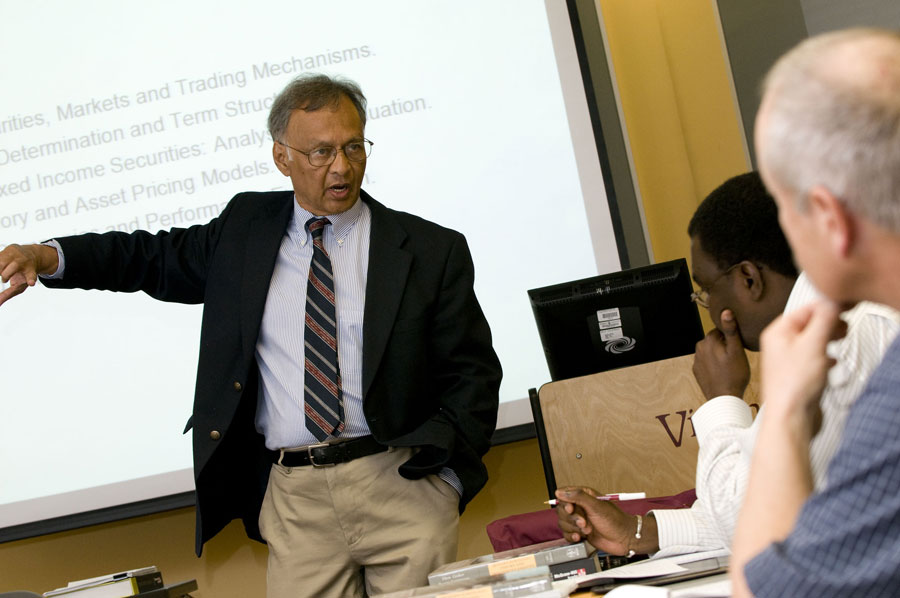Innovative program to ease national business faculty shortage graduates first students

Today, Virginia Tech's Pamplin College of Business will graduate its first group of nine students from an innovative program the college developed to help alleviate the critical national shortage of business-school faculty.
The college is among four United States business schools that launched this summer the first post-doctoral “bridge-to-business” programs approved by AACSB International (Association to Advance Collegiate Schools of Business), the accrediting organization for business schools worldwide. The programs are designed to prepare individuals with doctorates in non-business, but related, disciplines for new careers as business faculty members.
The students in Pamplin’s eight-week, residential program hold doctorates in economics, agricultural economics, statistics, geography, philosophy, or instruction and curriculum leadership; most were faculty members at other universities before signing up for the program. Six of the nine enrolled in the finance track; three were in the marketing track.
The graduating students are Robert Beach, Dharmendra Dhakal, Mohamad Fadiga, Matt Hettche, Poonam Kumar, Zhen Liu, Shabnam Mousavi, Joe Scarpaci, and Charles Sebuharara. They will receive a certificate of completion, indicating that they are “academically qualified” in their respective disciplines for a period of five years from the date of graduation, said Pamplin Dean Richard E. Sorensen. This means that they have gained sufficient additional knowledge and skills, through course work and research, to meet the initial qualifications for finance or marketing faculty, he said, but they will need to undertake appropriate scholarly activities to maintain their qualifications beyond the initial five-year period.
Sorensen, Virginia Tech Provost Mark McNamee, AACSB International President and Chief Executive Officer John Fernandes, and faculty members who taught in the program will participate in the certificate ceremony, to be held in the board room of the Holtzman Alumni Center.
The students have been offered assistance with the job search by AACSB. Several already have secured jobs as faculty members at university finance or marketing departments. The inaugural program attracted 150 enquiries, said Frank M. Smith, Pamplin’s director of management and professional development, who has received another 50 enquiries about next year.
Sorensen, who chaired AACSB’s working group on the doctoral faculty shortage, said there are currently about 1,000 job openings for Ph.D.-holding faculty at more than 400 AACSB-member schools in the United States. “The shortage of academically qualified faculty is projected to increase to 2,400 openings by 2012.”
The reasons for the faculty shortage, he said, include the 5 percent decrease in business doctorates earned worldwide. According to AACSB, 5,872 doctorates were earned in the 1995-99 period, compared with 5,611 in the 2000-05 period. Other supply-related reasons are competing employment offers from government agencies and industry; the fact that about half the doctoral graduates from United States institutions are foreign students, many of whom subsequently return home; and the retirements of existing faculty members. Meanwhile, on the demand side, demand for faculty has risen, driven by significant increases in business-student enrollments.
AACSB solicited proposals for post-doctoral bridge programs from its member schools in February 2007. In September, it approved programs at only five business schools — at Tulane University, the University of Florida, University of Toledo, Grenoble Ecole de Management in France, and Virginia Tech’s Pamplin College of Business.
To apply to Pamplin’s 2009 post-doctoral bridge program, e-mail Frank Smith, or call (540) 231-4972.
- Learn more about the AACSB program endorsement.
- Read the related University Spotlight: “Opportunity: When demand exceeds supply.”




